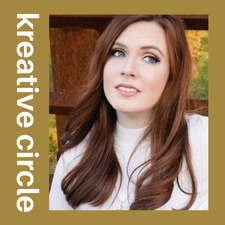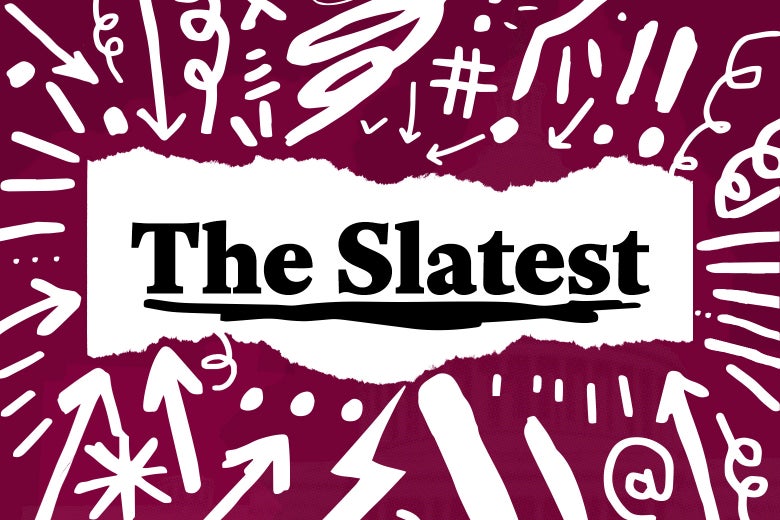Natalie, welcome to Kreative Circle! As a professionally trained writer, do you recall the first time you aspired to pursue the craft of writing? Do you remember the very first piece you wrote early in life?
I do remember when I first wanted to pursue writing. I was actually a sophomore in high school and I joined a club called JAG (Jobs for America’s Graduates). The club had a state competition and I was given a project to write a script for a video that we had to make. Technically, that the was the first piece I’ve ever written. My love for writing extends all the way back to elementary school. The very first piece I ever written that I personally consider to be my first professional piece was a poem that I crafted in college.
Prior to authoring your two books, you worked as a translator interpreting Spanish and French stories into English. How did you come across this valuable opportunity which grants writers leverage in better understanding diction from a cultural and linguistic perspective? Were there any insights you acquired which surprised you pertaining how foreign authors write and what they value in their stories?
I studied Spanish and French in college, and majored in that. I started translating books as a side hustle to make a little extra money. Reading other people’s work gave me a lot of insight, so I am very lucky that I had that advantage. I already knew how to format a manuscript before I wrote my first book. One thing I definitely did learn, though, was that the French are a little more dramatic in their writing.
Your first book "Fourteen Day Fiance", published by Christian Faith Publishing, focuses on an autobiographical account of your fiance unexpectedly passing away following a brief engagement. The story focuses on how to move forward in life through these unplanned events without a proper closure. How did you perceive closure prior to these events in your life? How do you view the ideology of closure now? Where did you derive your strength from during your healing process?
I found closure in two ways. One of those ways was through writing. Writing my first book was very cathartic, because I was able to express feelings that I had bottled up for so long. I also did get closure in the court system as well, and I am very thankful for that. When I did get actual closure, because I had waited so long to hear it, it’s almost like it brought back all those old emotions and memories. I definitely got my strength from God and my family. My family was a huge support to me through my journey of finding closure but ultimately my strength came from God. I often say that it was God’s own strength that pulled me through and not my own.
Faith is a word that holds many meanings in different hearts. Faith is a verb for some people, faith is a noun for others. How do you view the word faith in your life? What life guidance can you share with those grieving their transition out of their literal and metaphorical relationships? Do you have a life mantra that you live by now?
Faith to me is a lot of things, but I like the way the Bible puts it. The Bible states that Faith is the assurance of things hoped for and the evidence of the unseen. I live by this verse, not only because it motivates me, it also assures me that God has heard me and will come through for me.
Your second book "After the Storm" took about nine months to write. The book focuses on working through the grief following the previous events of your fiance Jason's passing and finding the strength to cross the bridge into the new reality waiting for you. Everyone processes grief differently. What resources, from people to tools, did you exercise to assist you through this process?
My grief process was a difficult one. I not only grieved the death of someone I loved dearly, I also had to grieve the loss of a relationship and losing the chance to get married. Marriage is something that I’ve always wanted and accepting the fact that it wasn’t going to happen was one of the most difficult things I had to process. Throughout my grieving process, I went to see a therapist. I struggled a lot with thoughts of suicide and I was diagnosed with PTSD after witnessing such a traumatic incident.
In hindsight, do you believe Jason was brought into your life for a purpose? If Jason is listening, what would you like to tell him?
I very much do believe that Jason was brought into my life for a reason. He brought me closer to God and taught me how to love myself. If Jason were listening to me right now, I’d tell him how much I love him. I’d also thank him for teaching me the major lessons that he taught me in such a short amount of time.
The universe has blessed you with a new partner in your life. How did you two meet? How did your overall being welcome this new person into your path? Have these events encouraged you to possibly write another book in the future?
I met my amazing new partner at a book signing of mine. There was just something about him that stood out to me. He was different than all the other guys. This man came into my life at the right time. I knew that I wanted someone new and I had been looking for while. It was honestly really strange, because when I stopped actively searching for partner, then he just shows up out of nowhere. Overall, it’s been very positive and I’m so glad that I opened my heart up to him. This incident has definitely inspired some ideas for more books in the future.
What are two writing tips you can share for authoring a memoir? Are there tips you wish you had known sooner to exercise?
One tip for writing is memoir is start with an outline. Write down every event in your life in chronological order and start building from there. The second piece of advice is build an audience up before you even start writing the book. The more audience you have, the better.
What is the most useful constructive guidance you've received as an author? How has this improved your outlook on life and writing?
Honestly, as cheesy as it sounds, the best piece of advice that I was ever given as an author was to never give up. I had a quitter mentality and my friends, family, and everyone I worked with clearly saw that in me. They brought it to my attention, told me to snap out of it and not to quit. This has improved my outlook on both life and writing in a huge way. Whenever I start writing a new book, I get this feeling that it’s never going to be good enough or that people won’t resonate with it and hate it. So, whenever I feel like this, I go back to what my family told me. Don’t quit.
Natalie, what is the most fearless thing you've done in the past year? What new adventures do you look forward to now?
The most fearless thing I’ve done this year is opening my heart back up to love. I was scared of how people would react, but it’s the best decision I’ve ever made. What I look forward to this year is obviously the release of my new book After The Storm on December 15th. Personally, I’m looking forward to making new memories and just seeing where life takes me.
Please share with audiences how they can support your work.
Author Site @ Natalie P. Jenkins
Natalie @ Good Reads
Twitter @nataliepjenkins
I do remember when I first wanted to pursue writing. I was actually a sophomore in high school and I joined a club called JAG (Jobs for America’s Graduates). The club had a state competition and I was given a project to write a script for a video that we had to make. Technically, that the was the first piece I’ve ever written. My love for writing extends all the way back to elementary school. The very first piece I ever written that I personally consider to be my first professional piece was a poem that I crafted in college.
Prior to authoring your two books, you worked as a translator interpreting Spanish and French stories into English. How did you come across this valuable opportunity which grants writers leverage in better understanding diction from a cultural and linguistic perspective? Were there any insights you acquired which surprised you pertaining how foreign authors write and what they value in their stories?
I studied Spanish and French in college, and majored in that. I started translating books as a side hustle to make a little extra money. Reading other people’s work gave me a lot of insight, so I am very lucky that I had that advantage. I already knew how to format a manuscript before I wrote my first book. One thing I definitely did learn, though, was that the French are a little more dramatic in their writing.
Your first book "Fourteen Day Fiance", published by Christian Faith Publishing, focuses on an autobiographical account of your fiance unexpectedly passing away following a brief engagement. The story focuses on how to move forward in life through these unplanned events without a proper closure. How did you perceive closure prior to these events in your life? How do you view the ideology of closure now? Where did you derive your strength from during your healing process?
I found closure in two ways. One of those ways was through writing. Writing my first book was very cathartic, because I was able to express feelings that I had bottled up for so long. I also did get closure in the court system as well, and I am very thankful for that. When I did get actual closure, because I had waited so long to hear it, it’s almost like it brought back all those old emotions and memories. I definitely got my strength from God and my family. My family was a huge support to me through my journey of finding closure but ultimately my strength came from God. I often say that it was God’s own strength that pulled me through and not my own.
Faith is a word that holds many meanings in different hearts. Faith is a verb for some people, faith is a noun for others. How do you view the word faith in your life? What life guidance can you share with those grieving their transition out of their literal and metaphorical relationships? Do you have a life mantra that you live by now?
Faith to me is a lot of things, but I like the way the Bible puts it. The Bible states that Faith is the assurance of things hoped for and the evidence of the unseen. I live by this verse, not only because it motivates me, it also assures me that God has heard me and will come through for me.
Your second book "After the Storm" took about nine months to write. The book focuses on working through the grief following the previous events of your fiance Jason's passing and finding the strength to cross the bridge into the new reality waiting for you. Everyone processes grief differently. What resources, from people to tools, did you exercise to assist you through this process?
My grief process was a difficult one. I not only grieved the death of someone I loved dearly, I also had to grieve the loss of a relationship and losing the chance to get married. Marriage is something that I’ve always wanted and accepting the fact that it wasn’t going to happen was one of the most difficult things I had to process. Throughout my grieving process, I went to see a therapist. I struggled a lot with thoughts of suicide and I was diagnosed with PTSD after witnessing such a traumatic incident.
In hindsight, do you believe Jason was brought into your life for a purpose? If Jason is listening, what would you like to tell him?
I very much do believe that Jason was brought into my life for a reason. He brought me closer to God and taught me how to love myself. If Jason were listening to me right now, I’d tell him how much I love him. I’d also thank him for teaching me the major lessons that he taught me in such a short amount of time.
The universe has blessed you with a new partner in your life. How did you two meet? How did your overall being welcome this new person into your path? Have these events encouraged you to possibly write another book in the future?
I met my amazing new partner at a book signing of mine. There was just something about him that stood out to me. He was different than all the other guys. This man came into my life at the right time. I knew that I wanted someone new and I had been looking for while. It was honestly really strange, because when I stopped actively searching for partner, then he just shows up out of nowhere. Overall, it’s been very positive and I’m so glad that I opened my heart up to him. This incident has definitely inspired some ideas for more books in the future.
What are two writing tips you can share for authoring a memoir? Are there tips you wish you had known sooner to exercise?
One tip for writing is memoir is start with an outline. Write down every event in your life in chronological order and start building from there. The second piece of advice is build an audience up before you even start writing the book. The more audience you have, the better.
What is the most useful constructive guidance you've received as an author? How has this improved your outlook on life and writing?
Honestly, as cheesy as it sounds, the best piece of advice that I was ever given as an author was to never give up. I had a quitter mentality and my friends, family, and everyone I worked with clearly saw that in me. They brought it to my attention, told me to snap out of it and not to quit. This has improved my outlook on both life and writing in a huge way. Whenever I start writing a new book, I get this feeling that it’s never going to be good enough or that people won’t resonate with it and hate it. So, whenever I feel like this, I go back to what my family told me. Don’t quit.
Natalie, what is the most fearless thing you've done in the past year? What new adventures do you look forward to now?
The most fearless thing I’ve done this year is opening my heart back up to love. I was scared of how people would react, but it’s the best decision I’ve ever made. What I look forward to this year is obviously the release of my new book After The Storm on December 15th. Personally, I’m looking forward to making new memories and just seeing where life takes me.
Please share with audiences how they can support your work.
Author Site @ Natalie P. Jenkins
Natalie @ Good Reads
Twitter @nataliepjenkins















